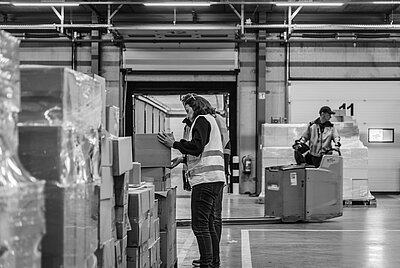Few consumers recognise that changes in their shopping habits, which increasingly centre on online retail and home deliveries, are at least part of the story. In early 2021, Wired reported that “retailers across the UK have complained that they are unable to source cardboard boxes at all. And Amazon is partly to blame.” According to the Financial Times, increased use of online retail this has contributed towards a “more than tenfold rise in the price of cardboard since the start of the pandemic.”
The trouble is not enough used cardboard is making it back into the supply chain through recycling – a situation that is not being helped by the Covid-10 working restrictions. Jori Ringman, director general of the Confederation of European Paper Industries, Cepi, told Packaging Europe that, “individual cities in some [EU] Member States have announced that they might have to reduce separate collections or even close sorting centres” and that Cepi itself has “warned authorities of the risk of stopping separate collection of paper for recycling from households and supermarkets, as recycled fibres are an essential part of our supply chain.”
But while plastic boxes were, briefly, the answer to egg producers’ woes, plastic is far from a panacea – not least because there are shortages there, too. In mid-April, EuPC, the EU-level trade association of European plastic converters, warned that “the European plastics converting industry is facing severe shortages of raw materials and extreme price increases never experienced before. This situation is threatening the economic survival of numerous SMEs but also having a massive impact on the production of countless products, ranging from applications in the building and automotive industry to essential goods for the food packaging and pharmaceutical supply chains.”
The causes of current supply issues
The result has been an inevitable price increase caused by both raw material shortages and disrupted sea trade. Container prices, for example, have risen by up to 700%, at a time when demand for polyethylene, the raw material for plastics, is between 40% and 50% above normal levels.
More seriously, some European customers are experiencing a four-fold increase in lead times on the production of plastic bags – up from five weeks to twenty. This isn’t helped by increased use of plastics in the production of personal protective equipment (PPE) in the fight against Coronavirus, and of paper in take-away packaging, which has surged as sit-in restaurants have been forced to find alternative routes to market.
Whether it’s possible to encourage consumers to take a more active interest in the process of recycling and reusing material is debatable – and campaigning along those lines may be more effective in some territories than others. The European Environment Agency’s figures, last modified in 2019, showed Germany achieving rates approaching 70%, Malta recycling less than 10%, and the EU average sitting at around 45%.
Recycling rates are improving but, unless authorities are inclined to increase kerbside collection or invest in more convenient refuse centres, retailers may have to take the initiative themselves. In doing so, they will find inspiration in Body Shop founder Anita Roddick, who pioneered the return and refill model, not because it was good for the environment, she said, “but because we didn’t have enough bottles.”
The importance of reliable suppliers
Hindsight is rarely comforting but, with planning, the worst effects could have been mitigated. At Worldpack, that’s exactly what we have enabled many of our clients to do.
Our buying power means we have been able to mitigate the full impact of the price increases many of our competitors are passing on, saving our customers money. This has been possible thanks to our broad, assured and accredited supply chain, which is overseen by experienced category managers who can influence lead times. They work alongside professional inventory managers whose responsibility it is to control stock levels so that products are available when required.
As a result, many of our clients have been shielded, and many have been able to offset some of the product price increases by taking advantage of a full-service consolidation model.
Packaging, whether plastic, paper or cardboard, is an essential component in a retail operation’s goods not for resale supply chain. Without it, they either can’t supply customers at all or, more often, can’t provide the service they might wish.
While nobody can say when the current shortages will be eased, one thing is for certain: retailers whose suppliers have broad, continent-wide reach will not only be the best-informed outlets, but also best-placed to benefit from a stable, diversified supply chain.
If you are concerned about your supply chain, speak to Worldpack on +31(0) 88 494 20 80 or email online@worldpack.eu.


